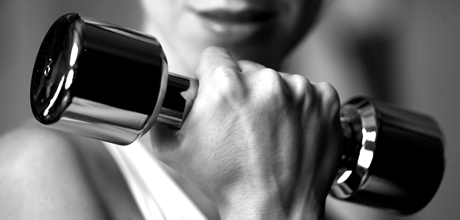
All exercise is beneficial as you age, but choose carefully and you can target the areas of your body you’re most concerned about to stay fit.
Unfortunately there’s no magic exercise that’ll help you stay young forever. Ageing is a natural process – and a privilege – that we should whole heartedly embrace. However, if you fill your days with unhealthy habits, like a poor diet and minimal movement, you could end up ageing prematurely and shaving years off your lifespan.
So, while there is no way to avoid ageing altogether, there are plenty of ways to keep yourself looking and feeling healthy as you get older. While diet plays a big part in maintaining your health, exercise is also crucial to supporting your body’s journey through the decades.
Here are the best anti-ageing exercises to ward off age-related diseases and conditions and keep you looking and feeling younger as you age…
Walking
Accessible, thrifty and super-effective – walking is the ultimate anti-ageing exercise. Regular walking is linked to lower risk of heart disease, diabetes, high blood pressure and osteoporosis. But don’t dawdle – experts believe that your speed might help you monitor how healthy you are. Studies have found that a person with a walking speed slower than 0.6m per second may be at increased risk of poor health.
Running
It’s good for your heart, but running is also a form of weight-bearing exercise, meaning it challenges and strengthens your skeleton. Studies have shown that runners have fewer disabilities, stay active for longer and halve their risk of an early death.
Yoga
Yoga offers a resistance workout, enhancing muscle strength and flexibility, and can help offset lower back pain, stiff joints and loss of balance. But yoga is also an effective stress reliever – in an analysis of its effect on the brain chemical GABA, research has found that it is superior to other exercise in terms of its positive effect on mood.
Pilates
Pilates strengthens the core muscles that protect your spine – but it also enhances joint flexibility, balance and coordination. Crucially, it’s great for injury rehabilitation and is gentle enough to be continued into old age. According to studies, a sustained programme can enhance mobility.
Dancing
Dancing is a weight-bearing form of aerobic exercise and can rev up your grey matter too. Research has found that alongside playing musical instruments, reading and playing board games, hitting the dance floor helps you ward off dementia.
Swimming
An excellent aerobic workout, great for muscle tone and joint mobility, swimming is kind on an ageing body as your weight is fully supported. Research has found that regular and moderately intensive swimming can halt the downward decline of your key age markers, blood pressure, muscle mass, blood chemistry and pulmonary function.
Pelvic floor exercises
Surprisingly, around four million British women have stress incontinence. It occurs when the sphincter muscle isn’t strong enough to withstand bladder pressure, and is common after childbirth and pregnancy. One preventative step is to shape up your pelvic floor muscles, which wrap from the front of your pelvis to your tailbone and keep all your internal organs in place. Daily Kegel exercises are a must.
Resistance training
Various age-related conditions, including osteoporosis, joint immobility and, crucially, dramatic muscle loss, can be prevented or at least slowed by strengthening your muscles with resistance work. And it’s never too late to start weight-training. Studies have found that it has the potential to actually reverse muscle ageing because it improves the way muscle cells work.
